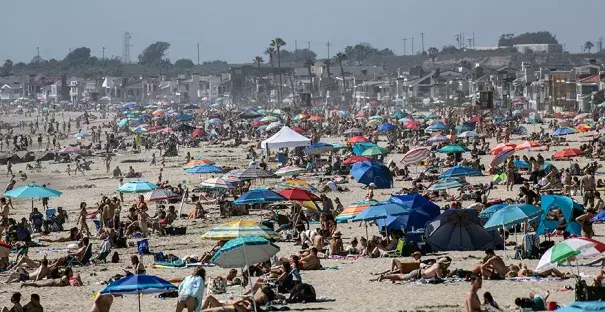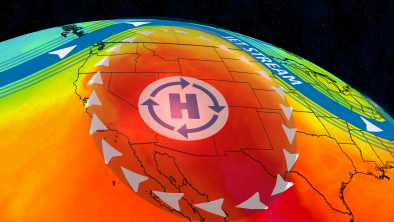PANDEMIC: Dangerous choice: Swelter in quarantine or risk contagion

Climate Signals Summary: Climate change is increasing the frequency, intensity, and duration of heat waves.
Article Excerpt: Summer arrived early for parts of the Southwest last weekend, as a heat wave sizzled across Southern California and into neighboring states.
Temperatures in downtown Los Angeles climbed into the 90s. And Phoenix broke 102 degrees Fahrenheit on Sunday, a record for daily heat on April 26.
Both cities made the decision to open up cooling centers around town — air-conditioned public buildings where residents without AC can shelter from the heat. It's a common public health service across the country during the summer.
But this year, it's a risky business. Congregating in cool public spaces may reduce the risk of heatstroke — but it may also put people at risk of spreading the new coronavirus.
...
Now, with heat wave season swiftly approaching, public health experts are urging cities to think carefully about how to protect vulnerable populations as the pandemic rages on.
These are life-or-death considerations. Extreme heat is one of the leading causes of weather-related fatalities in the United States, killing hundreds of people each year. And the risks are only growing as the climate warms.
...
"In the midst of one crisis, it's not always easy to think about another crisis," said Helene Margolis, an expert on climate and health at the University of California, Davis. "When I give talks about climate change and heat stress, etc., etc., I always say we need to think about these things in advance of crisis, because that's the only way we're gonna make ethical decisions and really solve these problems."
...
There's an added complication when it comes to extreme heat, said Kristie Ebi, a professor of global health at the University of Washington.
The people who tend to be most susceptible to heat-related illness, like heatstroke, are often the same people who are most vulnerable to complications from the coronavirus. These include the elderly, the homeless and people with cardiorespiratory problems or other underlying health conditions.
"Certainly in a heat wave you don't want to take a whole bunch of people susceptible to COVID-19 and put them in close quarters in a shelter," she said.
Related Content



